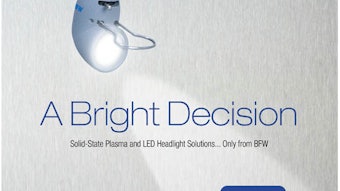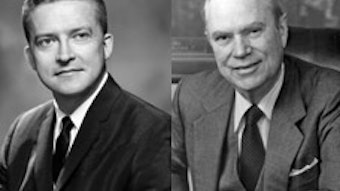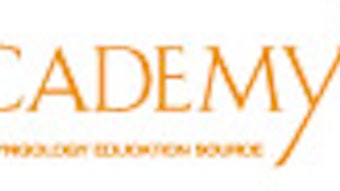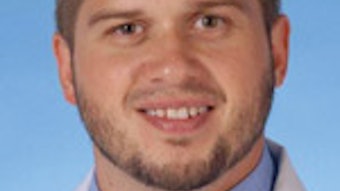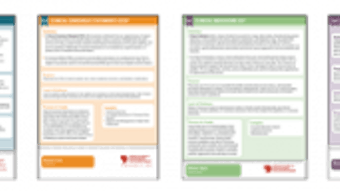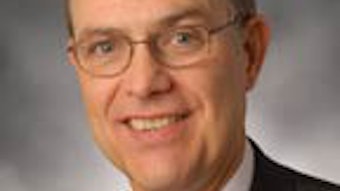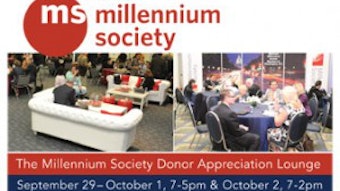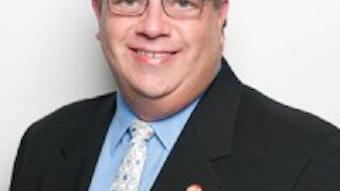Mark Your Calendars: Health Policy Education Opportunities at 2013 Annual Meeting
During the 2013 AAO-HNSF Annual Meeting & OTO EXPOSM in Vancouver, British Columbia from September 29-October 2, the Physician Payment Policy (3P) Workgroup and AAO-HNS Health Policy team are proud to put together two miniseminars for attendees. These miniseminars are a must attend for any member, so mark your calendars. Alternative Payment Models and Academy Advocacy Learn about the future direction of payment and importance of 3P and Academy’s role in future directions of payment, and the importance of developing future payment models. Topics include updates on Accountable Care Organizations (ACOs) bundled payment and risk adjustment, and quality reporting initiatives. In addition, panel members will discuss Academy advocacy progress and accomplishments in the health policy realm, such as Wellpoint’s revision of its coverage policy for tonsillectomy in children. By attending this miniseminar you will learn about current healthcare reform initiatives, new payment models, Academy efforts on Capitol Hill related to SGR repeal, the role of the BOG in development of future payment strategies, measure development, regulation, and reporting. Pearls on How to Successfully Transition to ICD-10 Coding by 2014 Based on feedback from the Centers for Medicare & Medicaid Services (CMS) the implementation date for ICD-10 has been finalized as October 1, 2014. In light of this, the Academy has undertaken numerous efforts to aid Members in preparing for this transition. Prior efforts include the development of an ICD-10 Superbill, available on the Academy website: http://bit.ly/entICD10. In addition, the health policy team and 3P leaders are offering a 2013 miniseminar that will assist otolaryngologists in determining the impact the transition from the International Classification of Diseases 9th Version of diagnostic codes (ICD-9) to the 10th version ( ICD-10) will have on their practice and other healthcare providers. The presentation will provide a timeline of essential activities for successful implementation. In this session the Academy will provide a third party payer perspective, a physician perspective, and an administrator perspective on ICD-10 and how practices and providers can prepare to ensure a smooth transition. This is the largest change to the healthcare system in our history and careful planning and action will be necessary in order to successfully implement ICD-10. The deadline for transitioning to ICD-10 is October 1, 2014 and it is anticipated to cause problems for unprepared physicians and practices. For physicians in private practice, it will be especially important to learn how you can successfully make this important administrative/coding transition. In this miniseminar we will explore common implementation hurdles, outlining why it is important to get started now, and how physicians will be impacted by clinical documentation issues. Finally, we will review the most commonly billed ENT ICD-9 diagnosis codes and provide examples reflecting what they will look like in ICD-10-CM. These and other miniseminars presented at the 2013 annual meeting are aimed at educating members on issues that affect everything from their practice to the specialty as a whole. For more information on these, and other seminars, check out the Academy’s Annual Meeting & OTO EXPO website and preliminary program at www.entannualmeeting.org.
During the 2013 AAO-HNSF Annual Meeting & OTO EXPOSM in Vancouver, British Columbia from September 29-October 2, the Physician Payment Policy (3P) Workgroup and AAO-HNS Health Policy team are proud to put together two miniseminars for attendees. These miniseminars are a must attend for any member, so mark your calendars.
Alternative Payment Models and Academy Advocacy
Learn about the future direction of payment and importance of 3P and Academy’s role in future directions of payment, and the importance of developing future payment models. Topics include updates on Accountable Care Organizations (ACOs) bundled payment and risk adjustment, and quality reporting initiatives. In addition, panel members will discuss Academy advocacy progress and accomplishments in the health policy realm, such as Wellpoint’s revision of its coverage policy for tonsillectomy in children. By attending this miniseminar you will learn about current healthcare reform initiatives, new payment models, Academy efforts on Capitol Hill related to SGR repeal, the role of the BOG in development of future payment strategies, measure development, regulation, and reporting.
Pearls on How to Successfully Transition to ICD-10 Coding by 2014
Based on feedback from the Centers for Medicare & Medicaid Services (CMS) the implementation date for ICD-10 has been finalized as October 1, 2014. In light of this, the Academy has undertaken numerous efforts to aid Members in preparing for this transition. Prior efforts include the development of an ICD-10 Superbill, available on the Academy website: http://bit.ly/entICD10. In addition, the health policy team and 3P leaders are offering a 2013 miniseminar that will assist otolaryngologists in determining the impact the transition from the International Classification of Diseases 9th Version of diagnostic codes (ICD-9) to the 10th version ( ICD-10) will have on their practice and other healthcare providers. The presentation will provide a timeline of essential activities for successful implementation. In this session the Academy will provide a third party payer perspective, a physician perspective, and an administrator perspective on ICD-10 and how practices and providers can prepare to ensure a smooth transition. This is the largest change to the healthcare system in our history and careful planning and action will be necessary in order to successfully implement ICD-10. The deadline for transitioning to ICD-10 is October 1, 2014 and it is anticipated to cause problems for unprepared physicians and practices. For physicians in private practice, it will be especially important to learn how you can successfully make this important administrative/coding transition.
In this miniseminar we will explore common implementation hurdles, outlining why it is important to get started now, and how physicians will be impacted by clinical documentation issues. Finally, we will review the most commonly billed ENT ICD-9 diagnosis codes and provide examples reflecting what they will look like in ICD-10-CM.
These and other miniseminars presented at the 2013 annual meeting are aimed at educating members on issues that affect everything from their practice to the specialty as a whole. For more information on these, and other seminars, check out the Academy’s Annual Meeting & OTO EXPO website and preliminary program at www.entannualmeeting.org.

